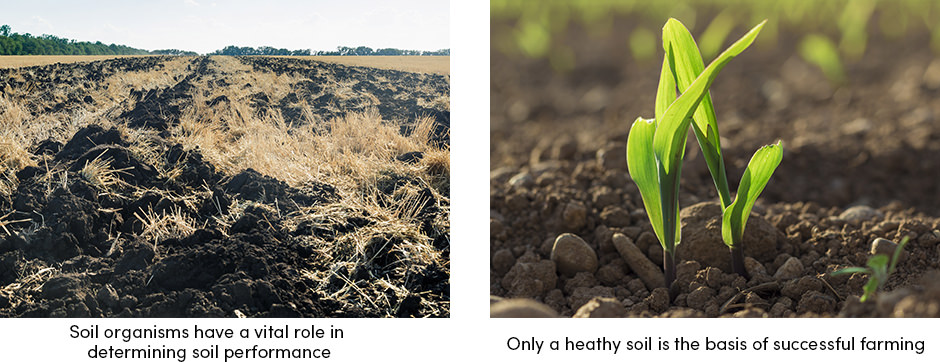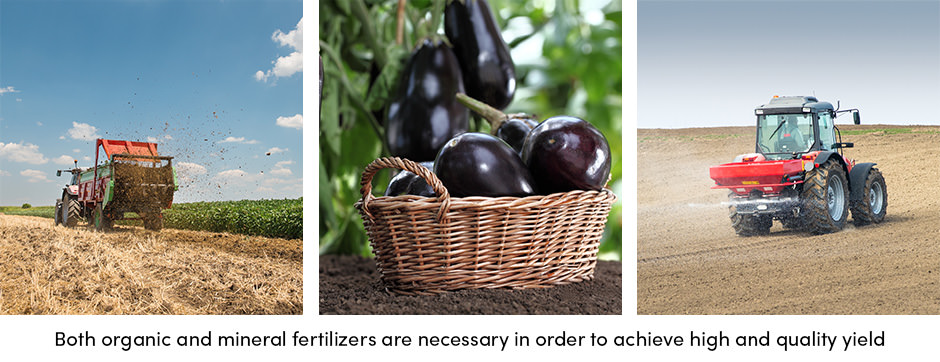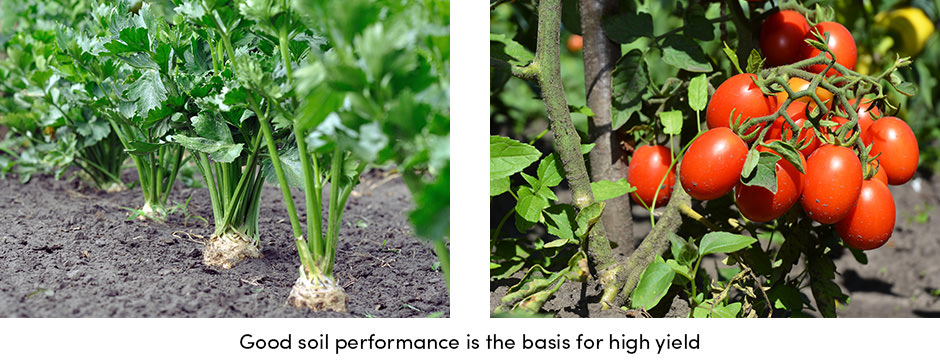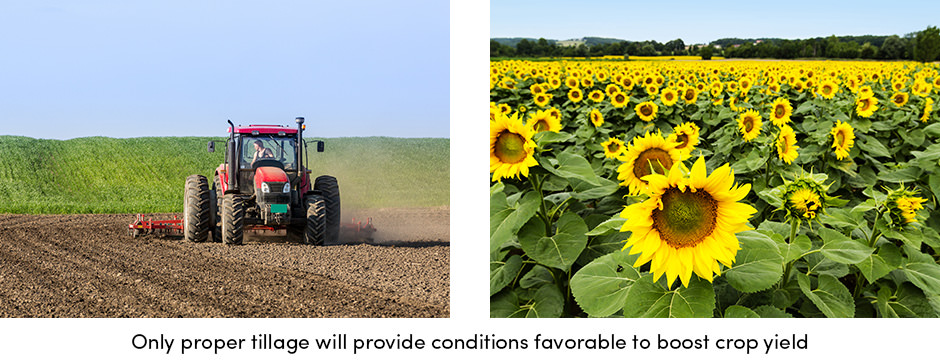Soil is the fundamental resource for every crop production. However, to achieve successful and sustainable farming, the soil needs to be healthy. In other words, this is the primary condition for abundant and quality yield.
Aiming to be successful, a farmer needs to carefully manage soil health. But, what does this mean? The soil is a live media full of living organisms such as fungi, bacteria, worms and millions of other microscopic organisms. They all play a vital role in the creation of the organic matter which reflects on soil conditions and finally its health. So, by managing the soil organisms properly, a farmer is on the right path to achieve a successful soil performance.

Soil performance can be increased by managing several indicators. These are as follows:
Although plants require several nutrients in large amounts such as nitrogen (N), phosphorus (P2O5), potassium (K2O), other nutrients are efficient in even small amounts such as iron (Fe), boron (B), zinc (Zn), and manganese (Mn).
However, one thing is very important. Adding plant nutrients to the soil will not guarantee a good soil performance. It can even cause an opposite effect such as lower yield, slower plant growth or plant drying. Good soil conditions can be achieved only if a farmer knows current nutrient levels. Therefore, to ensure a good soil performance, it’s mandatory to make a chemical soil analysis prior to the fertilization.

Applying the right amount of fertilizers to plants, allows a farmer to save his money and, more importantly, practice sustainable farming and protect the environment.
“Regular chemical soil analysis is an essential factor of good soil performance.”
The Optimum Soil pH—A Formula for Farmer’s Success
After plant nutrients, soil pH is the second most important factor for good soil performance. Ranging from acid to alkaline, it determines the success of plant growth and final yield. For that reason, managing a soil pH is a key point to every farmer who strives to productive farming.
Every plant has its optimal pH range with favorable conditions for its proper growth. Therefore, inadequate soil pH reduces the accessibility of certain plant nutrients, resulting in lower plant growth and reduced yield. So, regardless the amount of applied fertilizers, if soil pH is not optimum for a certain plant, the yield will fail.
In conclusion, regular chemical soil analysis is the best way to achieve a good soil performance.

Organic Matter in the Service of Nutrient Storage
Organic matter is a soil layer full of organisms vital for proper soil performance. It contains both living and dead organisms as well as humus. Organic matter serves as a plant nutrient storage, making it the core of the soil. Soils with inadequate nutrition and tillage management become poor thus affect the plant’s growing conditions.
Manage Soil Moisture to Prevent Yield Loss
For proper growth, besides soil, nutrients, and light, plants also need water. Optimal water levels in the soil ensure good plant growth. However, if there is a lack or surplus of water in the soil, the plant growth will be affected, causing stunted growth, dried or diseased plants, and low yield.
To ensure good soil performance, proper tillage is the only way for managing water levels in the soil.

Soil salinity determines the availability of plant nutrients. Excessive fertilization leads to increased soil salinity, thus affecting plant growth. For that reason, it’s crucial to fertilize crops based on previously measured nutrient levels in the soil.
Based on soil performance indicators, a farmer has a clear insight into soil’s health and the actions required to ensure it remains in good shape. We can conclude that having only one of the aforementioned soil KPIs outside their optimum, leads to lower plant quality and yield.
Don’t let your crop production depend on luck. Be the one who determines the path of successful farming by measuring soil regularly to get the right information about soil performance factors.
Aiming to be successful, a farmer needs to carefully manage soil health. But, what does this mean? The soil is a live media full of living organisms such as fungi, bacteria, worms and millions of other microscopic organisms. They all play a vital role in the creation of the organic matter which reflects on soil conditions and finally its health. So, by managing the soil organisms properly, a farmer is on the right path to achieve a successful soil performance.

Soil performance can be increased by managing several indicators. These are as follows:
- Macronutrients
- Micronutrients
- Soil pH
- Organic matter
- Soil moisture
- Soil salinity
Plant Nutrients as the Main Factor of Soil Performance
To grow healthy plants, a farmer has to ensure a good source of plant macro and micronutrients. Nutrients are plant’s food and that way, plants are able to achieve their genetic potential in the form of high yield.Although plants require several nutrients in large amounts such as nitrogen (N), phosphorus (P2O5), potassium (K2O), other nutrients are efficient in even small amounts such as iron (Fe), boron (B), zinc (Zn), and manganese (Mn).
However, one thing is very important. Adding plant nutrients to the soil will not guarantee a good soil performance. It can even cause an opposite effect such as lower yield, slower plant growth or plant drying. Good soil conditions can be achieved only if a farmer knows current nutrient levels. Therefore, to ensure a good soil performance, it’s mandatory to make a chemical soil analysis prior to the fertilization.

Applying the right amount of fertilizers to plants, allows a farmer to save his money and, more importantly, practice sustainable farming and protect the environment.
“Regular chemical soil analysis is an essential factor of good soil performance.”
The Optimum Soil pH—A Formula for Farmer’s Success
After plant nutrients, soil pH is the second most important factor for good soil performance. Ranging from acid to alkaline, it determines the success of plant growth and final yield. For that reason, managing a soil pH is a key point to every farmer who strives to productive farming.
Every plant has its optimal pH range with favorable conditions for its proper growth. Therefore, inadequate soil pH reduces the accessibility of certain plant nutrients, resulting in lower plant growth and reduced yield. So, regardless the amount of applied fertilizers, if soil pH is not optimum for a certain plant, the yield will fail.
In conclusion, regular chemical soil analysis is the best way to achieve a good soil performance.

Organic Matter in the Service of Nutrient Storage
Organic matter is a soil layer full of organisms vital for proper soil performance. It contains both living and dead organisms as well as humus. Organic matter serves as a plant nutrient storage, making it the core of the soil. Soils with inadequate nutrition and tillage management become poor thus affect the plant’s growing conditions.
Manage Soil Moisture to Prevent Yield Loss
For proper growth, besides soil, nutrients, and light, plants also need water. Optimal water levels in the soil ensure good plant growth. However, if there is a lack or surplus of water in the soil, the plant growth will be affected, causing stunted growth, dried or diseased plants, and low yield.
To ensure good soil performance, proper tillage is the only way for managing water levels in the soil.

Optimal Soil Salinity Boosts Plant Growth
Soil salinity is the salt content within the soil. As a naturally occurring mineral within soil and water, salt affects the growth and vitality of plants.Soil salinity determines the availability of plant nutrients. Excessive fertilization leads to increased soil salinity, thus affecting plant growth. For that reason, it’s crucial to fertilize crops based on previously measured nutrient levels in the soil.
Based on soil performance indicators, a farmer has a clear insight into soil’s health and the actions required to ensure it remains in good shape. We can conclude that having only one of the aforementioned soil KPIs outside their optimum, leads to lower plant quality and yield.
Don’t let your crop production depend on luck. Be the one who determines the path of successful farming by measuring soil regularly to get the right information about soil performance factors.





